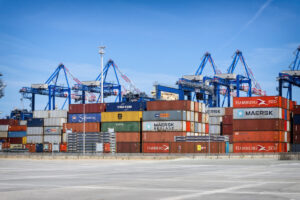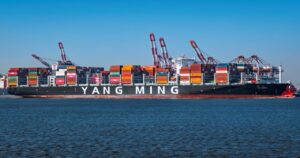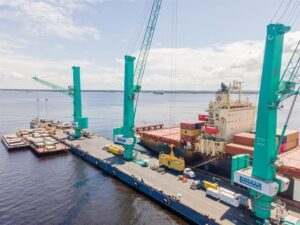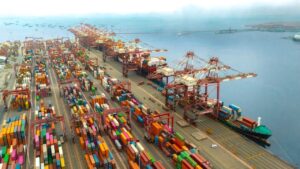As the demand placed on multiple nodes throughout the global supply chain increases – a trend which affects ports, terminals and service providers – the need to embrace smarter solutions powered by data is also becoming incredibly important.
It is evident that rising levels of digitization worldwide have prompted the significant, and in some cases exponential, growth of global industries, and the maritime sector is one of many business areas which can stand to benefit from this development.
Less advanced ports and terminal facilities still carry out some of their most important processes, such as recording data related to equipment and container moves, with the support of manual and inefficient systems.
On the other hand, there are port authorities, terminal operators and shipping companies which are already leveraging data to intelligently plan their operations, meet demand and ensure the security of their staff and cargo.
Smarter Shipping Needed
The industry of container shipping, as it exists today, faces a number of key challenges which could either hinder its potential growth, or force businesses to develop innovative strategies that will propel it into the future.
While the threat of overcapacity does linger on the horizon, this has not stopped major carriers such as Maersk and MSC from investing in much larger vessels, a move which has placed pressure on ports and terminals in vital locations to adapt their operations.
Vincent Campfens, Port of Rotterdam, discusses digital ports in a recent Port Technology technical paper
Another consideration for these companies is the rapid speed at which their supply chains are now required to move.
As next-day shipping, in many cases, gives air-freight the edge over other kinds of transport, businesses working within the maritime space must find new ways to expedite the movement of cargo around the world.
Ultimately, technologies dependent upon smart data and digital applications, like automation, will spread far and wide, forcing a decisive change across the industry.
That being said, companies choosing to embrace the potential of smart data today could become increasingly competitive in the here and now, and the leaders of a digital culture ready to boom.
Developing a Data Culture
There are many factors influencing the drive towards data and digitization within the shipping sector, and companies both large and small have a role to play in supporting this movement.
ABB, one of the world’s biggest automation specialists, has asserted that embracing digital applications and intelligent data tools is key to growth, both for maritime trade and the global economy.
Equally, there are also start-up organizations breaking technological bounds to create a bedrock for this digital revolution, many of which are working in close collaboration with industry giants.
Read more: Insight: How Smart Start-Ups Are Changing Maritime
In December 2018, Konecranes enlisted the support of two particularly innovative businesses working within the space of ocean-freight: CargoMate, which has developed a platform to forecast cargo completion times, and Nyris, a company that uses AI-based solutions to process visual data.
The cooperation of big businesses and emerging start-ups, with one supporting and scaling the paradigm-shifting solutions devised by the other, is a crucial part of tomorrow’s data culture, and something that must continue to be fostered today.
#SPSC18 All of our speakers have discussed why we should share #SmartData to benefit the #Maritime industry.
What is the most important reason that data should be made available as part of a collaborative effort by ports, terminals and related businesses? pic.twitter.com/WhxWP9iayt
— Port Technology (PTI) (@PortTechnology) October 3, 2018
The Future of Digital Shipping
Trade hubs directly responsible for the movement of goods, processing of cargo and smooth flow of the maritime supply chain will also have to evolve along with technology, digitizing their operations for improved efficiency.
Experts within the industry clearly concur with this sentiment; Managing Director of Kuenz David Moosbrugger, in an exclusive paper for Port Technology, emphasizes that “data analyzing tools will be changing the way companies work in the future”, providing a more transparent and holistic overview of a facility’s performance.
The potential results of a digital shift towards the more open and intelligent exchange of data have been demonstrated by the success of ports like Rotterdam, which has introduced such innovations as the Pronto application and Port Community Systems (PCS) to produce supply chains that are smarter and more connected.
Connectivity, communication and transparency are all areas in which the maritime sector can progress massively, yet all of them depend on a data culture that is more responsive and prepared for change.
For an opportunity to learn more about the huge potential of data in the shipping industry, please visit the official website of the Container Terminal Automation Conference 2019.
Read more:
Article written by Liam Donovan, Assistant Editor










